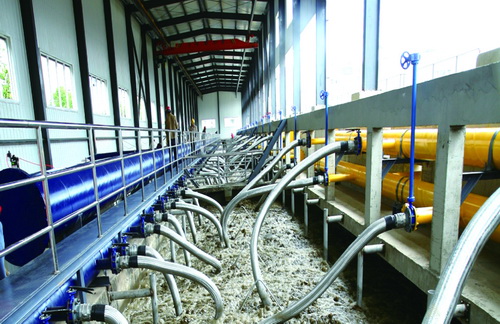Over the years, climate change has played a critical role in the dwindling of natural resources. Water is one such resource which is believed to become scarce soon. With erratic and unpredictable monsoons and the alarming rate at which groundwater is disappearing, governments across the globe are taking extensive measures including rain water harvesting, wastewater treatment and desalination, to preserve and conserve water. Wastewater treatment plants play a vital role in the recycling and reuse of water.

What Do Waste Water Treatment Plants Do?
Wastewater treatment plants filter and sanitize water to remove pollutants and pathogens and produce reusable, clean water. This is done in different stages. In an industrial water treatment plant, the first stage rids water of solid pollutants such as plastic, metal, and paper. This is done in a sedimentation tank. Following this, the water is passed through a biological process that uses naturally occurring, micro-organisms to break down suspended organic pollutants.
The third stage of water treatment is known as the tertiary treatment stage. In this stage, the water is treated to remove biological pathogens which could be harmful to human health. This process may be repeated several times if the treated water is to be used for irrigational purposes or human consumption.
Benefits of Wastewater Treatment
Wastewater treatment not only presents a sustainable, long-term solution for conserving water but is also a great way to manage waste.
a. Waste Management: Wastewater treatment reduces the amount of waste that is released into the environment. This, in turn, reduces health risks to the community. Additionally, if communities undertake wastewater management extensively, it could bring down the expenses incurred by the government towards waste management.
b. Energy Production: Wastewater treatment produces a large amount of methane gas, which can be used for energy production. This energy can not only be used to run the treatment plant, but excess energy can be transferred to the national grid.
c. Fertilizer Production: The residue from wastewater treatment can be used for the production of organic fertilizers. These fertilizers can be used for agriculture and can bring down the use of chemical fertilizers significantly.
Advantages of Underground Wastewater Treatment
Setting up a treatment plant is not an easy job. It requires a lot of space to set up the plant. With scarcity of land emerging as a major challenge in the recent past, underground wastewater treatment plants present the most plausible solution.
a. Underground sewage treatment plants follow the same process as ordinary treatment plants and cleanse water for reuse.
b. Underground wastewater treatment plants save the community the inconvenience of unpleasant sight of the waste and its bad odor.
c. It is environment friendly as the waste is handled discreetly without releasing any of the residual matter out in the open.
If you are wondering if opting for an underground wastewater management system would be the right choice for you, this information should put your doubts to rest!
Leave it to the Experts!
At Cleantech Water, we aim to provide effective wastewater treatment solutions. We provide products and services related to sewage water treatment plants in India and across the globe. You can also reach out to us regarding maintenance, repair and operations of wastewater treatment plants, FRP sewage treatment plants etc. You can speak to us at +91-9099915539 / +91-9558996411 or write to us at Info@cleantechwater.co.in.

